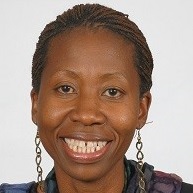Bio
Dr. Sela Muyoka Musundi earned her PhD in Cultural Studies in Education at Ohio University in Athens, Ohio. She also obtained a Graduate Certificate in Women’s, Gender & Sexuality Studies from the same school. She previously taught Master’s students in Gender and Development at the University of Rwanda (Centre for Gender Studies). Dr. Musundi has also taught at Egerton University’s Institute of Women, Gender, and Development Studies in Kenya. Presently, she is a senior gender advisor with the Centre for the Study of Adolescence in Nairobi, Kenya. Her research interests include: wartime rape, the lived experiences of young Rwandans born from war rape, and sexually transmitted infections among women in Kenya. She previously did research on how young Rwandans born as a consequence of rape during the 1994 genocide uncover “the truth” about their paternity and how they cope with the stigma associated with that identity. She is currently in Rwanda to conduct research on how young Rwandans born from genocide rape construct selfhood.

